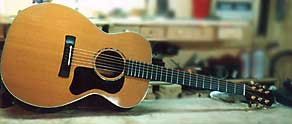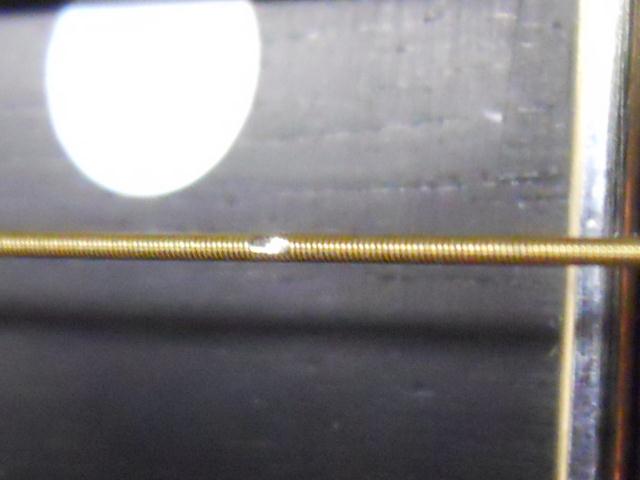
GUITAR GOT FRET BUZZ ? CHANGE YOUR STRINGS !
By Steve Carmody
This seems too simple, but it's true. In my experience, a fair number
of guitar fret buzz problems result from worn strings, especially on
guitars with otherwise good condition frets such as a relatively a
new instrument or one that has been recently serviced.
This is particularly the case when the buzz is occurring on one of
the wound strings, often in a lower position, say the first 3 frets
or so. Even though the strings may appear to be in good shape, what
has happened is that the underside of the string has become dented
or pitted where it contacts the fret. Eventually the dent in the
string is sufficient to drop the string below the fret ahead of
where it is being depressed, causing it to buzz.

It isn't as obvious from the player side of the string so we don't
immediately think of it. Similar to the moon, once strings are
tensioned up, we really only see one side them. But if you lift
the string and slide your finger along its underside, you will
feel the pits, if they are there. You may have to loosen the
strings to do this.
Repeated use of a capo at the same location also exacerbates this
problem. Whereas our fingers feel the frets and generally don't
apply any more pressure than is necessary, capos often get clamped
on much tighter than is necessary. This can lead to pitting on the
underside and fret buzz. Intonation can also be affected by this
wear, since , eventually, the string can be bearing off a different
point than dead-center.
Ultimately, relative to the money you have put into your instrument,
strings don't cost that much. And they do wear out. So, change your
strings regularly and if you are getting fret buzz and you haven't
recently changed your strings, changing your strings might solve the
problem.
Steve Carmody is an independant guitar repairman and luthier with a shop in Silver Spring, Md.
He has been doing guitar repair and restoration full-time since 1990.
He reserves all rights to the contents of this article. Republishing of this material without
attribution is not nice.
Questions about this article or anything else related to guitar repair?
Send e-mail to - GuitarRepairShop@aol.com
|

